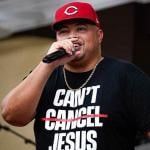
pawel szvmanski / Unsplash
Autism spectrum disorder (ASD) is a neurodivergent condition that causes you or people around you to have different developmental milestones. In recent years, views on autism from a New-Age perspective are changing how we think of ASD.
Conversations around autism and spiritual gifts can help you promote greater acknowledgment and acceptance of the community.
Thanks to their greater connection to the sensory input around them, many people believe autistic people are more likely to be psychic. This gift helps them predict and interpret situations better than a neurotypical person, allowing them to positively impact the world like no one else can.
For years, people saw ASD as a disability needing a “cure.” You might have as well. However, greater awareness about the spectrum and its spiritual connection shows us that is not the case. Autistic people have unique abilities that everyone should embrace and not feel burdened by.
Beliefs Challenging Perceptions Among Faith Communities
Knowledge and beliefs around ASD have likely changed for you and impact how others perceive it. Many New-Age concepts and anecdotal experiences suggest that people on the spectrum have divine connections. These spiritual gifts are life-changing for the person and everyone around them.
A study published in 2019 explored the experiences of autistic people and their believed spiritual experiences.
There are three focuses on how ASD relates to the spiritual plane.
1. Psychic Abilities
The ability to predict the future and read minds is considered a gift. Some children can draw intricate images of angels and spirits that believers think come from divine or mystic sources.
Scientists followed children who had these abilities. One autistic girl foretold family members calling at unpredicted times. An autistic boy predicted every one of the presents he would get on Christmas morning after they were purchased and wrapped.
One of these studies was of 9-year-old Nandana Unnikrishnan, who could allegedly read her mother’s mind. A team of researchers met with the family, and the girl read their minds flawlessly.
Many believe anyone can unlock their psychic ability, and it’s hard to deny the power many autistic people — especially children — possess. They can help you identify events to prepare for or prevent.
2. Supernatural Encounters
The 2019 study found that people with ASD described sensing another’s presence occasionally and seeing visions of ghosts and other spirits. If you live with autism, you might feel like someone else touches you or that you hear another person when no one else is around.
These encounters are so common that some refer to autistic people as “ghost magnets.” Many credit the increased sensory input typical in autism to these abilities. It gives them the ability to be more in tune with spiritual presences. If you believe ghosts are around us all the time, it’s easy to accept that those with autism can sense and encounter them.
The experience with these spirits could help you or someone with ASD hone psychic prowess. These entities know more than mortals and can warn someone about upcoming events or choices that could impact their future.
In the past, there was a deep fear of perceived supernatural events, often preventing people from exploring these abilities. However, you and many others might believe in angels, ghosts and spirits. Even the scientific community is now exploring how neurological abilities could connect to spiritual beliefs.
3. Spiritual Gifts
If you are a Christian, you likely believe that God gives everyone specific spiritual gifts they can use to enrich their lives and benefit the world. Each person can choose to develop and nurture their abilities or suppress them — including the psychic abilities that come with autism.
Some people with autism have savant syndrome, which you likely see as a spiritual gift. However, even those without this syndrome often have unique abilities and understandings that differ from neurotypical people. These differences in perspective make the world a better place, and you should see them as blessings regardless of your faith. Some people still struggle to accept that God would make someone with “limitations” and fear the supernatural abilities of people with ASD.
People who fear New-Age beliefs may find labeling them as spiritual gifts easier to handle.
The skepticism that remains in some sects of organized religion could impact why autistic people can find it easier to believe in spirits and demons than in God.
Others struggle to connect with God in the way texts describe, but their sensory experiences help them feel connected to the energies around them. As religious leaders become more accepting, it is easier for you to help autistic people to find their connection with God or other supernatural beings.
Previous Beliefs Around Autism in Faith Communities
Scientists first researched a combination of traits relating to autism in the 1940s. Before that, various symptoms were tied to beliefs around “mental retardation.” That demeaning diagnosis was often given to people outside of neurotypical development and often led to institutionalization and a lack of supportive therapies.
Dr. Leo Kanner and Dr. Hans Asperger studied children with developmental differences, beginning to connect the dots that there is a connection with these children and that something else might be going on.
Faith communities saw autism and neurodivergence as something that needed treatment and care. They needed healing or lived with demonic influences, with prayer and interventions trying to provide them with a “meaningful” life. We now realize that while some therapies are incredibly helpful for managing physical symptoms, there is nothing mentally or spiritually wrong.
Though research studies began examining autism in the 20th century, suspected autism cases were studied before the Civil War. People whose families believed they had mental disabilities showed areas of intelligence that didn’t match the diagnosis of “idiot.”
Research from Drs. Kanner and Asperger eventually led to autism being broken up into two diagnoses: autism and Asperger’s syndrome. Autism was what is now considered low-functioning in comparison to neurotypical people, while Asperger’s would be high-functioning. There was immense sympathy and some frustration toward these individuals. Many believed they and their families were living with a burden of sorts.
The “Changelings”
In European folklore, changelings were children who began developing “normally” but were “replaced” with creatures that took the form of the child but had some differences. Many didn’t react typically to joyous or upsetting events. Others couldn’t speak and seemed to decline in ability.
Historians believe these myths could be a way to describe autism. Now that we know about the diagnosis, these stories are tragic and offensive. Unfortunately, many neurodivergent conditions weren’t understood, and fairytales were just one of the ways people tried to make sense of them.
New-Age Beliefs and Embracing ASD
ASD is not something for you to feel ashamed of but to be admired. The world is designed for neurotypical people, but understanding the unique abilities and struggles of those on the spectrum can help you encourage inclusivity and embrace new ideas.
New-Age beliefs break the stigma around ASD by showing how gifted people with the condition can be.













